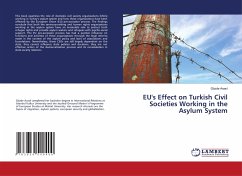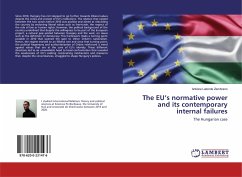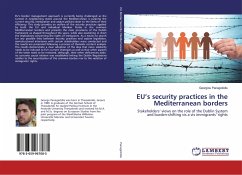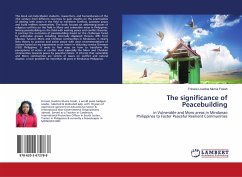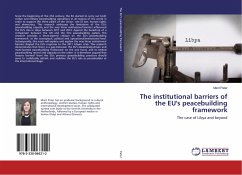
The institutional barriers of the EU's peacebuilding framework
The case of Libya and beyond
Versandkostenfrei!
Versandfertig in 6-10 Tagen
33,99 €
inkl. MwSt.

PAYBACK Punkte
17 °P sammeln!
Since the beginning of the 21st century, the EU started to carry out both civilian and military peacebuilding operations in all regions of the world in order to support the three pillars of the Union: rule of law, human rights and democracy. This research addresses the limitations of the EU's peacebuilding capacity and the way these institutional barriers influenced the EU's role in Libya between 2011 and 2014. Against the backdrop of a comparison between the UN and the EU's peacebuilding system, this research provides a three-layered critique on the EU's peacebuilding framework: at the concep...
Since the beginning of the 21st century, the EU started to carry out both civilian and military peacebuilding operations in all regions of the world in order to support the three pillars of the Union: rule of law, human rights and democracy. This research addresses the limitations of the EU's peacebuilding capacity and the way these institutional barriers influenced the EU's role in Libya between 2011 and 2014. Against the backdrop of a comparison between the UN and the EU's peacebuilding system, this research provides a three-layered critique on the EU's peacebuilding framework: at the conceptual, political and operational/institutional level. Subsequently, this work will explore and explain the way these institutional barriers shaped the EU's response to the 2011 Libyan crisis. This research demonstrates that there is a gap between the EU's idealistically-driven and multi-faceted peacebuilding framework on the one hand, and its limited peacebuilding record and capacity on the other. It is therefore argued that 'lessons learned' from the EU's previous peacebuilding practices should serve to realistically rethink and redefine the EU's role as peacebuilder at the international stage.




